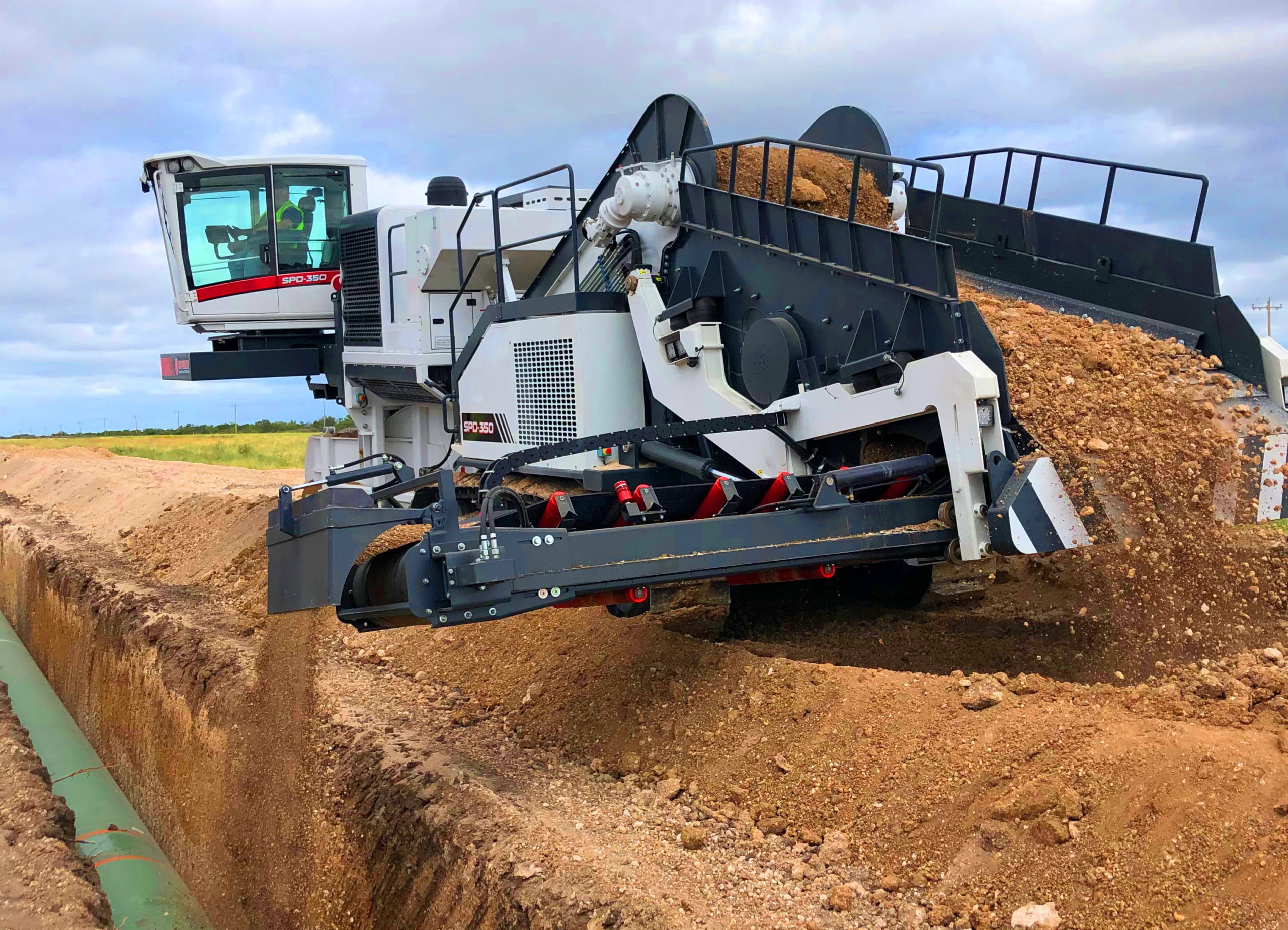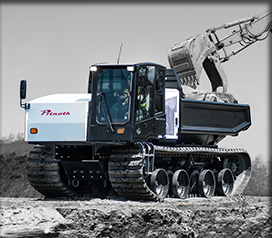A Comprehensive Guide to the Different Types of Oil Field Equipment and Pipeline Equipment Available
The oil and gas industry relies heavily on customized tools for efficient removal and transport. Different sorts of machinery, from drilling rigs to storage containers, play important duties in this intricate procedure. Each tool offers distinctive features that contribute to total functional success. Comprehending these parts is vital for any person associated with the market. As the sector advances, so as well do the innovations that sustain it. What innovations are on the perspective?

Drilling Rigs: The Foundation of Oil Exploration
Drilling rigs act as the necessary equipment in the domain name of oil exploration, allowing companies to access hydrocarbon books buried deep underneath the Planet's surface. These rigs are available in numerous types, including land rigs, offshore rigs, and mobile devices, each made to operate in particular settings. Geared up with sophisticated innovation, piercing rigs can penetrate geological developments with accuracy, guaranteeing reliable resource extraction. The architectural stability and operational abilities of these rigs are vital, as they need to withstand severe conditions and considerable stress. Moreover, the choice of a drilling gear affects the overall task cost and timeline, making it a vital factor to consider for oil firms looking for to optimize their exploration initiatives and make best use of productivity in their procedures.
Pumps: Vital for Fluid Movement
In the oil removal procedure, the function of pumps is substantial, facilitating the movement of liquids throughout various phases of production. Pumps are crucial for moving unrefined oil, water, and other fluids from below ground reservoirs to the surface and then via pipes to refineries. They can be found in different kinds, including centrifugal, positive displacement, and submersible pumps, each offering specific objectives based on the fluid attributes and operational demands. Centrifugal pumps are typically utilized for their performance in high-flow applications, while favorable variation pumps master handling thick fluids. The option of pump effects overall performance, operational safety and security, and upkeep expenses. Appropriate selection and upkeep of pumps are crucial for optimizing production and decreasing downtime in oil area operations.
Valves: Controlling Flow and Pressure

Valves play an important function in taking care of the flow and pressure of fluids within oil fields and pipes. Various sorts of valves serve distinct applications, each developed to fulfill details features fundamental for reliable operation - Superior Rentals fusion machines. Recognizing the attributes and uses these shutoffs is essential for optimizing system performance and security
Kinds of Valves
Essential components in oil area procedures, shutoffs play an important role in regulating the circulation and stress of liquids within pipelines and devices. Various types of shutoffs are made use of to meet the diverse needs of oil and gas production. Usual kinds include gateway shutoffs, which provide a straight-line circulation and minimal pressure decrease; world shutoffs, known for their strangling capabilities; and sphere valves, recognized for their fast on/off control. In addition, check shutoffs protect against heartburn, while butterfly valves use a lightweight option for managing circulation. Each shutoff kind is developed with details products and configurations to stand up to the extreme conditions commonly discovered in oil areas, guaranteeing reliability and efficiency in operations. Understanding these kinds is essential for effective system monitoring.
Valve Applications and Features
While various kinds of valves serve unique objectives, their primary applications rotate around controlling flow and pressure within oil and gas systems. Shutoffs such as entrance, world, and sphere shutoffs regulate liquid activity, making certain peak efficiency and safety and security. Gate valves are generally made use of for on/off control, supplying marginal flow resistance. Globe valves, on the various other hand, offer specific flow regulation, making them suitable for throttling applications. Ball valves are preferred for their fast procedure and tight sealing capabilities. In addition, pressure alleviation shutoffs are critical for avoiding system overpressure, securing devices integrity. Generally, the appropriate option and application of shutoffs improve functional performance, ensuring the trustworthy transportation of oil and gas through pipelines and processing facilities.
Compressors: Enhancing Gas Transport
Compressors play a crucial function in the efficient transport of gas, making sure that it moves smoothly via pipes over cross countries. These tools raise the pressure of gas, enabling it to get rid of friction and elevation modifications within the pipeline system. Additionally, compressors facilitate the balancing of supply and need, suiting changes in consumption and production rates. Different kinds of compressors are utilized in the sector, consisting of centrifugal, reciprocating, and rotating screw compressors, each offering unique benefits based on the operational demands. Normal upkeep of these compressors is important to optimize effectiveness and lessen downtime, eventually contributing to a trustworthy gas transport network. Their important feature highlights the relevance of compressors in the overall oil and gas facilities.
Storage Tanks: Safe and Effective Liquid Administration
Effective transportation of natural gas depends on numerous supporting systems, among which is the correct monitoring of tank. These storage tanks play a crucial function in securely including liquids, guaranteeing that operational performance is maintained while minimizing environmental threats. Created from durable materials, they are made to hold up against high stress and destructive elements. Properly sized and strategically situated, tank help with the smooth flow of gas and various other liquids, preventing burst water heater bottlenecks in supply chains. Routine maintenance and monitoring are crucial to find leaks or structural issues, advertising safety and security and compliance with regulatory criteria. Ultimately, the reliable management of storage space tanks is vital for the total honesty and reliability of the oil and gas industry's fluid handling systems.
Pipeline Solutions: Framework for Transport
Pipeline systems act as the foundation of the oil and gas industry, assisting in the reliable transportation of hydrocarbons over large ranges. These systems include various parts, consisting of pipes, valves, pumps, and compressors, all carefully developed to assure seamless flow. The materials made use of in pipeline construction, frequently steel or high-density polyethylene, are chosen for toughness and resistance to deterioration. Pipeline networks can span throughout land and water, connecting production websites to refineries and distribution facilities. Furthermore, advanced modern technology enables real-time tracking of circulation rates and stress levels, enhancing operational efficiency. The critical positioning of these pipes lessens ecological effect while making best use of source availability, consequently playing an essential function in conference energy demands around the world.
Security Equipment: Making Sure Employee and Environmental Defense
The procedure of pipeline systems, while crucial for energy transportation, also presents considerable security challenges for employees and the environment. Security devices plays a substantial function in minimizing these risks. Personal safety devices (PPE) such as helmets, gloves, and non-slip shoes safeguards employees from physical risks. Furthermore, gas detection systems check for leakages, making sure that harmful substances do not pose a threat to personnel or the bordering ecosystem. Emergency situation shutdown systems are critical for promptly stopping procedures throughout a situation, protecting against potential catastrophes. Spill control materials, including absorbents and barriers, are essential for reducing environmental influence. In general, investing in comprehensive safety and security tools is critical for keeping functional stability and securing both workers and the setting in the oil and gas sector.

Regularly Asked Questions
How Do I Choose the Right Oil Field Equipment for My Task?
Choosing the right oil area devices includes examining task specifications, budget restrictions, and functional needs. Consider variables such as devices integrity, compatibility with existing systems, and the provider's reputation to ensure peak efficiency and safety.
What Are the Upkeep Needs for Oil Field Equipment?
Maintenance needs for oil field equipment consist of regular evaluations, lubrication, and timely repair work. Operators must additionally comply with producer standards, display efficiency metrics, and warranty conformity with safety regulations to boost long life and effectiveness.

Exactly How Can I Make Certain Compliance With Environmental Regulations?
To ensure conformity with ecological laws, firms must perform regular audits, implement best methods, purchase visit this web-site training, keep proper documentation, and remain updated on regulations (Superior Oilfield Rentals Texas). Cooperation with environmental firms can additionally improve adherence to laws
What Is the Average Life Expectancy of Pipeline Equipment?
The typical life-span of pipeline tools usually ranges from you can look here 20 to 50 years, depending on elements such as material quality, environmental problems, and maintenance methods. Routine assessments can considerably influence durability and functional efficiency.
How Do I Securely Deliver Oil Field Equipment to Remote Locations?
Transporting oil field equipment to remote locations requires careful planning, including path analysis, securing licenses, utilizing ideal cars, and ensuring safety methods are complied with. Correct training and communication amongst teams are crucial for successful transportation.